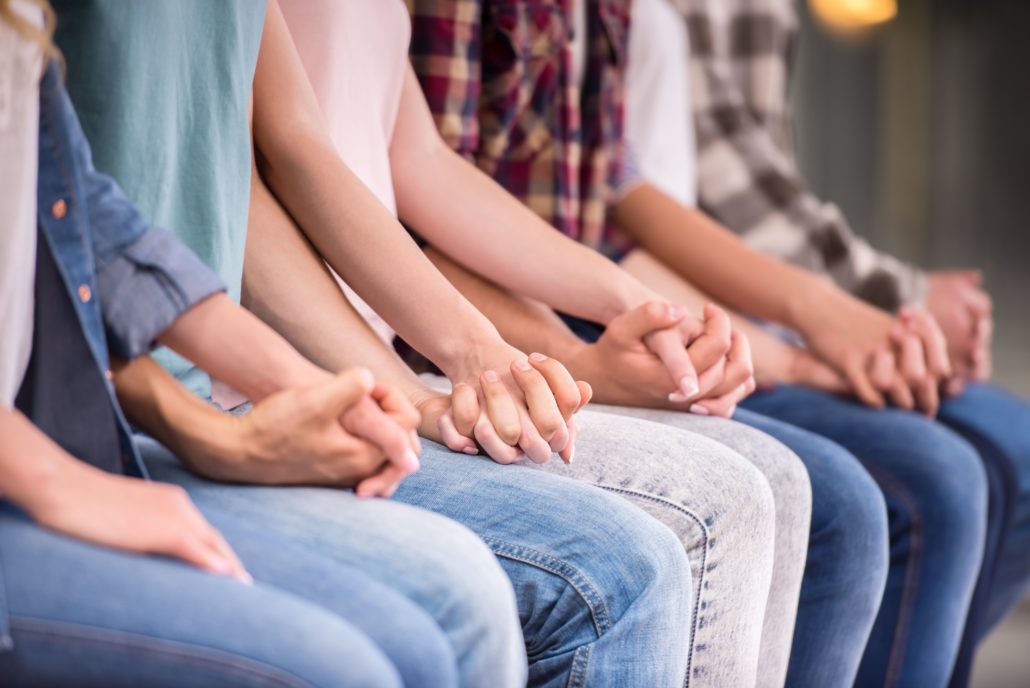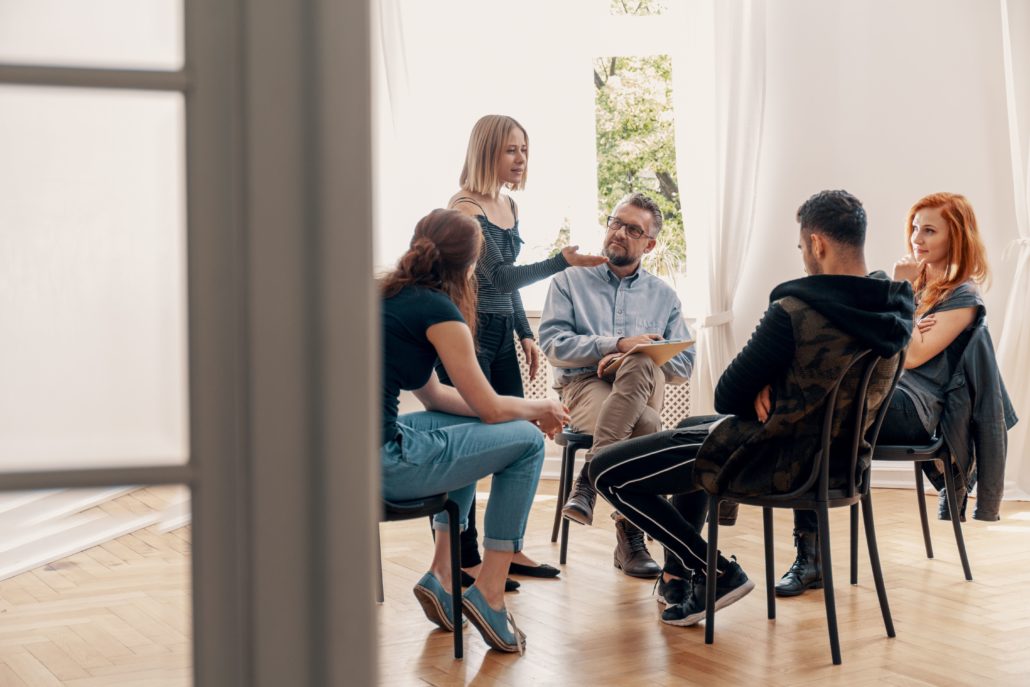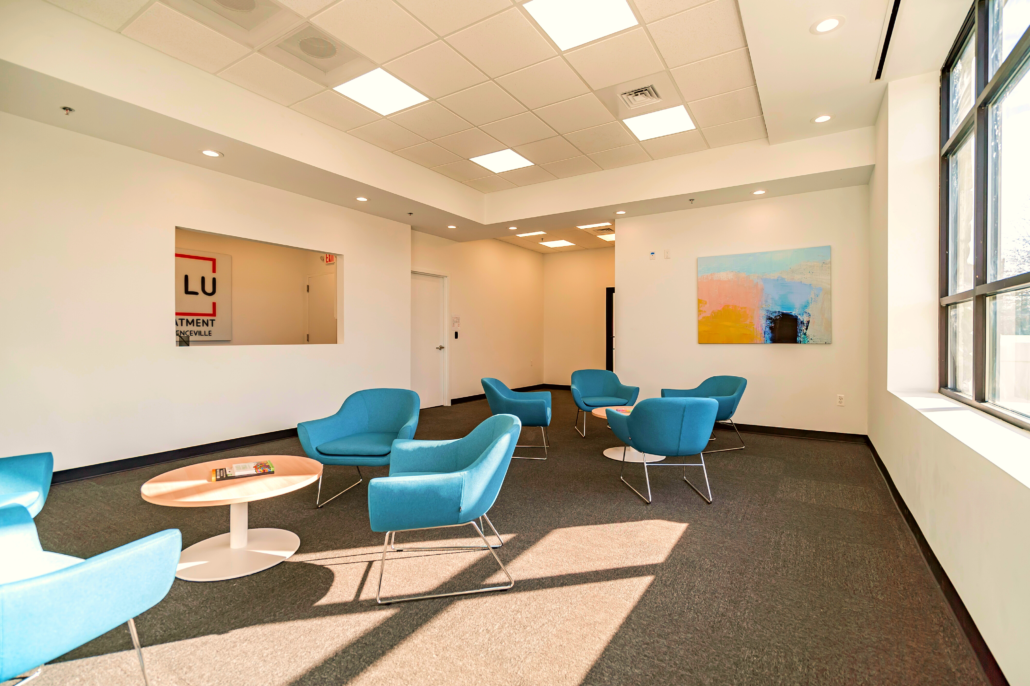What is Drug Addicts Anonymous?
Drug Addicts Anonymous is a fellowship of men and women who have recovered from drug addiction and are committed to helping those who still suffer. We have recovered by using the Twelve Steps as outlined in the book of Alcoholics Anonymous.
Drug Addicts Anonymous is not affiliated with any sect, denomination, politics, organization, or institution, does not engage in any controversy, and neither endorses nor opposes any causes. Its primary purpose is to recover from our addiction and help other addicts to achieve the same freedom. Drug Addicts Anonymous is not dedicated to users of any specific drug, and no single drug was predominant among our members.
The Twelve Step program is a fact-finding and fact-facing process. It requires action on the part of the addict and, if worked properly, will be intensive and enlightening. Newcomers may choose to be guided through the steps by experienced members of Drug Addicts Anonymous who have had deep and effective spiritual experiences as the result of working the steps themselves [1].
Once we were able to admit that we had been defeated by addiction, all that was required to begin the program was willingness, honesty, and open-mindedness.


Get Your Life Back
Find Hope & Recovery. Get Safe Comfortable Detox, Addiction Rehab & Mental Health Dual Diagnosis High-Quality Care at the We Level Up Treatment Centers Network.
Hotline (877) 378-4154What is Substance Use Disorder?
The Substance Abuse and Mental Health Services Administration (SAMHSA) [1] defines substance use disorders (SUDs) as the recurrent use of alcohol and/or drugs that causes clinically significant impairment, including health problems, disability, and failure to meet primary responsibilities at work, school, or home.
Substance use disorders describe both illicit or illegal substances and the misuse of legal substances like alcohol, nicotine, or prescription drugs. The American Psychiatric Association’s Diagnostic and Statistical Manual of Mental Disorders,
Fifth Edition (DSM-5) outlines eleven symptoms of SUDs:
- Having a persistent wish to stop using the substance and/or continuously trying to reduce or control substance use
- Continuing to use the substance despite knowing that a physical or psychological health issue was likely caused or worsened by the substance
- Using the substance in larger amounts or over a long time period than originally intended
- Exhibiting withdrawal symptoms when not using the substance
- Spending a significant amount of time trying to obtain the substance, use it, or recover from using it
- Stopping or decreasing social, work-related, or recreational activities due to substance use
- Building up a tolerance, where a larger amount of the substance is needed to experience an effect
- Having a strong urge to use the substance
- Continuing to use even when it causes an inability to fulfill work, school, or home-related responsibilities
- Continuing to use the substance even when it causes interpersonal problems or makes them worse
- Continuing to use the substance even in situations that are risky or physically dangerous
The most common types of substance use disorders in the U.S. involve the use of one or more of the following substances:
Alcohol – Excessive alcohol consumption increases the risk of serious health conditions such as heart disease, wet brain, and alcohol liver damage, and hypertension and can cause health issues related to acute alcohol intoxication behaviors and withdrawal. Criteria for diagnosis include an inability to control alcohol intake, developing a tolerance, and/or developing alcohol withdrawal symptoms.
Opioids – In recent years, the U.S. has seen a dramatic increase in opioid addiction, which are substances used to relieve pain in healthcare settings. Opioids work by binding to receptors in the brain or body to reduce pain signals going to the brain. Opioids include prescription drugs such as hydrocodone (Vicodin), oxycodone (OxyContin, Percocet), codeine, morphine, as well as illegal substances like heroin. Misusing opioids can lead to physical dependence, severe respiratory depression, and even death.
Stimulants – Stimulants include amphetamines, methamphetamines, and cocaine. Stimulants increase alertness, breathing, blood pressure, and heart rate. Misuse can lead to overly elevated body temperature, seizures, and heart failure, as well as psychological symptoms like hostility and psychosis.
Hallucinogens – Hallucinogens are substances that distort perceptions of reality and cause hallucinations. Hallucinogenic substances include chemically synthesized substances like MDMA (also known as Ecstasy), phencyclidine (PCP), and lysergic acid diethylamide (LSD), as well as naturally occurring substances like psilocybin mushrooms, peyote, or mescaline.
Get Help. Get Better. Get Your Life Back.
Searching for Accredited Drug & Alcohol Rehab Centers Near You? Or Mental Health Support?
Even if you have failed previously, relapsed, or are in a difficult crisis, we stand ready to support you. Our trusted behavioral health specialists will not give up on you. Call us when you feel ready or want someone to speak to about therapy alternatives to change your life. Even if we cannot assist you, we will lead you wherever you can get support. There is no obligation. Call our hotline today.
FREE Addiction Hotline – Call 24/7The 12 Steps of Drug Addicts Anonymous
Here are the 12 Steps we took, which are suggested as a program of recovery:
- We admitted we were powerless over narcotics and all other mind altering substances – that our lives had become unmanageable.
- Came to believe that a Power greater than ourselves could restore us to sanity.
- Made a decision to turn our will and our lives over to the care of God as we understood Him.
- Made a searching and fearless moral inventory of ourselves.
- Admitted to God, to ourselves and to another human being the exact nature of our wrongs.
- Were entirely ready to have God remove all theses defects of character.
- Humbly asked Him to remove our shortcomings
- Made a list of all persons we had harmed, and became willing to make amends to them all.
- Made direct amends to such people wherever possible, except when to do so would injure them or others
- Continued to take personal inventory and when we were wrong promptly admitted it.
- Sought through prayer and meditation to improve our conscious contact with God as we understood Him, praying only for knowledge of His will for us and the power to carry that out.
- Having had a spiritual awakening as the result of these steps, we tried to carry this message to drug addicts and to practice these principles in all our affairs.
Comfortable Facilities & Amenities
High-Quality Addiction & Mental Health Rehabilitation Treatment
Rehab Centers TourRenowned Addiction Centers. Serene Private Facilities. Inpatient rehab programs vary.
Addiction Helpline (877) 378-4154Proven recovery success experience, backed by a Team w/ History of:
15+
Years of Unified Experience
100s
5-Star Reviews Across Our Centers
10K
Recovery Success Stories Across Our Network
- Low Patient to Therapist Ratio
- Onsite Medical Detox Center
- Comprehensive Dual-Diagnosis Treatment
- Complimentary Family & Alumni Programs
- Coaching, Recovery & Personal Development Events
How to Find Drug Addicts Anonymous Meetings

Most 12-step organizations have their meetings listed on their websites. DAA, for example, has a list of upcoming meetings on its website that you can attend without scheduling. On it, you’ll certainly find helpful Drug Addicts Anonymous meetings near you.
You might also learn when you can attend a meeting by calling a Drug Anonymous helpline or even join by clicking the link that is available on the DAA’s website. DAA also enables users to start a meeting on their own. This can be done by following the instructions outlined by the group.
All of these meetings come free of charge. Unfortunately, they are just one aspect of addiction treatment and you may want to consider joining a specialized program. There are many payment options for individuals looking for help with their SUD should they decide to seek professional help.
What Happens at Drug Addicts Anonymous or Substance Abuse Anonymous Meetings?
Drug Anonymous meetings for drug addiction can complement the effects of professional rehabilitation treatment. They provide additional forms of help for drug addiction or any other type of SUD. Most rehab facilities encourage their patients to participate in DAA meetings during and after treatment.
DAA meetings offer struggling individuals readily available community-based resources for free. This is a way to provide help to drug users with no insurance or money and individuals who might benefit from being in a community of supportive people who have had their own issues with SUD.
What Can I Expect at a Drug Addicts Anonymous or Substance Abuse Anonymous Meeting?
Substance Abuse Anonymous meetings tend to vary a bit, as they are directed by the local members. However, the basics behind them stay the same, as most people inside the room have gone through the same struggles.
During the meeting, the participants share their stories in an open discussion. Often, there is a topic that serves as the foundation behind this discussion.
‘Newcomers’ will usually be asked to introduce themselves, using only their first name to stay anonymous. After that, many participants with similar stories will come to support the new participants and help them open up and reflect on the underlying reasons behind their addiction.
World-class, Accredited, 5-Star Reviewed, Effective Addiction & Mental Health Programs. Complete Behavioral Health Inpatient Rehab, Detox plus Co-occuring Disorders Therapy.
CALL (877) 378-4154End the Addiction Pain. End the Emotional Rollercoaster. Get Your Life Back. Start Drug, Alcohol & Dual Diagnosis Mental Health Treatment Now. Get Free No-obligation Guidance by Substance Abuse Specialists Who Understand Addiction & Mental Health Recovery & Know How to Help.
What are the Benefits of Drug Addicts Anonymous or Substance Abuse Anonymous Group?
DAA meetings and groups can provide many benefits to participants. Substance Abuse Anonymous groups show some level of clinical effectiveness. For instance, 42.3% of participants who participated in a survey that explored DAA benefits stated that they found DAA meetings helpful.
The same study showed that regular attendance of DAA meetings for three years or more was 4.1 to 8.6 times more likely to sustain abstinence than people who don’t participate in such programs.
Overall, a significant number of individuals reported feeling the benefits of being a part of a group of sober people. While a combination of medical treatment and Alcoholics or Addicts Anonymous meetings seems to provide the best outcome, a 12-steps program can help its members remain abstinent from illicit substances.
Where Can I Attend Drug Addicts Anonymous or Substance Abuse Anonymous Meetings Near Me?
There are many Drug Anonymous meetings nationwide held every day, many times a day. Some organizations, such as AA, NA, and Al-Anon, have downloadable applications that will let you know where you can find a Drug Anonymous meeting near you.
Other than downloading apps, you might try the old-fashion way and look up a phone number in the local telephone book, white pages, or online. Next to AA, CA, and NA, you might also try to find these organizations:
- Celebrate Recovery
- Chemical Dependent Anonymous
- Crystal Meth Anonymous
- Dual Recovery Anonymous
- Marijuana Anonymous
- Moderation Management
- Pills Anonymous
- Women for Sobriety
Some of these groups might even arrange an online group meeting via video call. However, most meetings are held in locations such as treatment centers, churches, or other similar facilities that tend to be affordable, convenient, and available.
The desire and cravings to use drugs can still persist even after multiple completions of the Drug Addicts Anonymous. In cases like this, it’s highly recommended to seek additional drug addiction treatment. Rehab facilities like We Level Up NJ offer in-house 12-step group meetings. This makes it easy to get additional treatment in a single location. Our dedicated team will be there every step as you overcome drug addiction, from individual counseling to alcohol detoxing. Contact us to learn more about how you can enroll in our treatment program today.

Experience Transformative Recovery at the We Level Up Treatment Center.
See our authentic success stories. Get inspired. Get the help you deserve.



Start a New Life
Begin with a free call to an addiction & behavioral health treatment advisor. Learn more about our dual-diagnosis programs. The We Level Up treatment center network delivers various recovery programs at each treatment facility. Call to learn more.
- Personalized Care
- Caring Accountable Staff
- Comfortable Amenities
- Licensed & Accredited
- Renowned w/ 5-Star Reviews
We’ll Call You
Sources:
[1] NIDA – https://archives.drugabuse.gov/publications/step-by-step-guides-to-finding-treatment-drug-use-disorders/if-you-have-problem-drugs-adults/support-groups